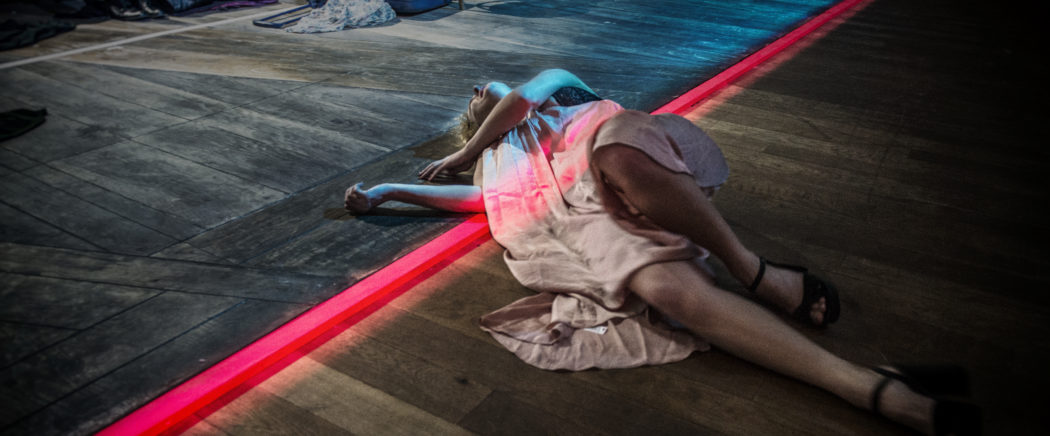Before the Theatre of the Absurd, there was Franz Kafka. True, Kafka didn’t write for the stage. Yet he took great interest in Prague’s Yiddish theatre scene, and his unfinished nightmarish novel The Trial (composed between 1914 and 1915) is so theatrical, it’s no wonder that directors have been drawn to it. No one has come close to the virtuosity of the legendary Polish director Krystian Lupa. The claustrophobic, surreal, and terrifying experience of Joseph K., “the chief financial officer of a large bank,” who is arrested and prosecuted for an unknown crime by an unknown authority, deeply resonates with the repressive political climate of contemporary Poland as well as the creeping authoritarianism of the United States.
Rehearsals for The Trial began at the Teatr Polski in Wroclaw in 2015, but were quickly canceled following the appointment of a new director (Cezary Morawski), sympathetic to the ultra-conservative party in power with a Kafkaesque name — Law and Justice. The black tape, covering the mouths of the actors, is not just a theatrical gesture. It’s an act of protest against Poland’s censorship of artists and growing illiberalism.
Law as performance, the travesty of justice, show trials, and the murky ethics of business—it’s all already there in Kafka’s prescient novel: “The trial was no different than a major business deal of the sort he had often concluded advantageously for the bank” (125). The German title—Der Process—evokes time and durational performance. Indeed, Lupa is renowned for his stretching of time and staging of silence. As audience members, we are cast in the role of the jury. Yet as time passes, we get lost in the eerie and ever-shifting labyrinth of The Trial. Are we the arrested? And is Joseph K. innocent? He doesn’t know. And neither do we.
Lupa’s pitch-perfect adaptation hits the notes of the word Kafkaesque—senseless bureaucracy, disorienting complexity, relentless regulations. But there’s more. Kafka believed that literature could be “a hatchet with which we chop at the frozen seas inside us” (David Foster Wallace). So Lupa’s The Trial also evokes the book’s humor (according to Max Brod, Kafka laughed when reading from it), its dark eroticism, and its deep longing for a different world.
Maybe there’s no way out of the labyrinth. In which case, we might hear an echo of Beckett: “When you’re up to your neck in shit, all you can do is sing.”
Alisa Zhulina is an Assistant Professor of Theatre Studies in the Department of Drama at NYU Tisch School of the Arts and affiliated faculty in the Department of Russian and Slavic Studies.
